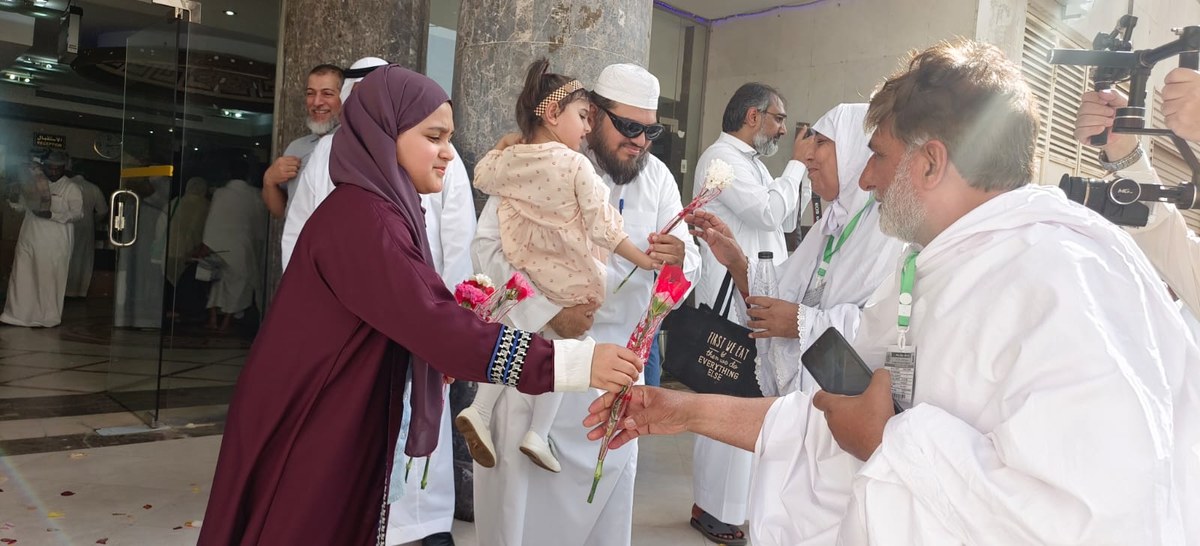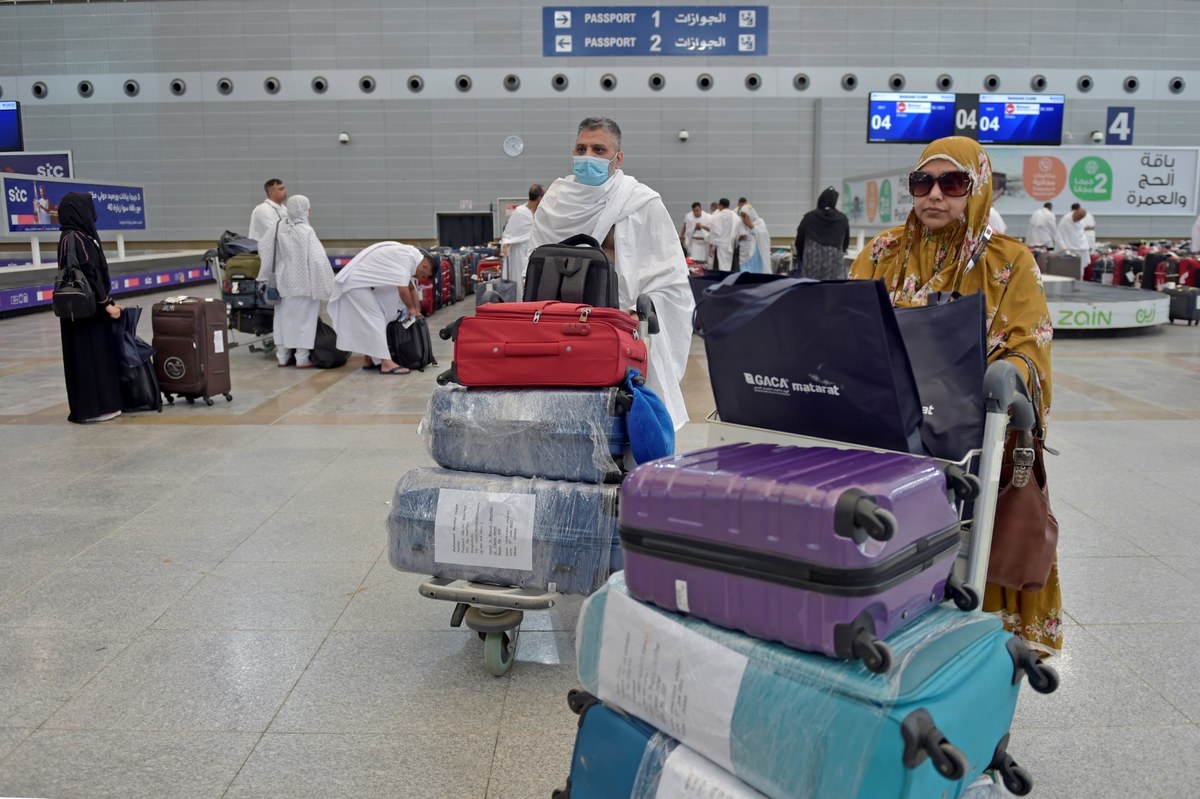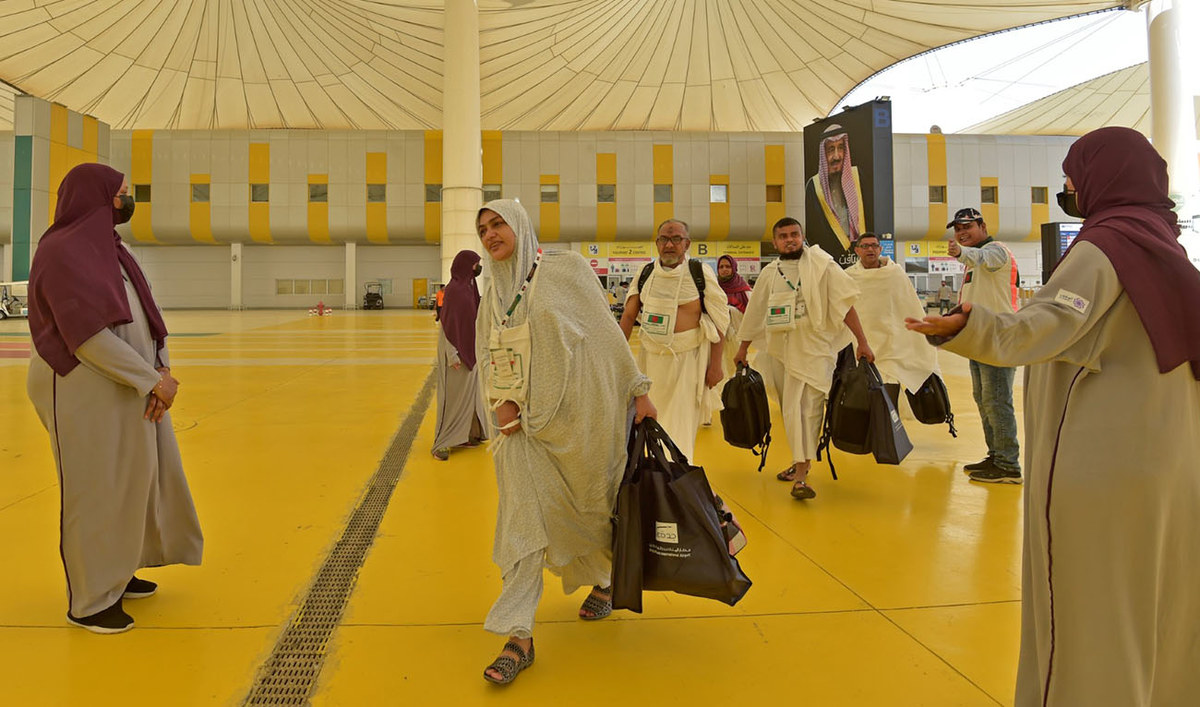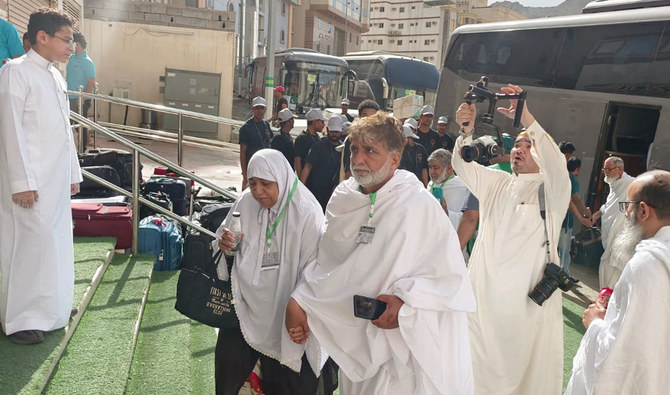ISLAMABAD: Pakistani women pilgrims this week lauded “excellent arrangements” made by the country’s Hajj mission in Madinah, describing their experience so far as smooth, with travel and accommodation excellently catered to, and helpful guidance regarding the pilgrimage provided in detail.
Over 31,000 Pakistani pilgrims have already arrived in Saudi Arabia for the annual Hajj pilgrimage later this summer. More than 27,000 are still in Madinah while 4,000 have reached Makkah by bus, the Pakistani religious affairs ministry said on Wednesday.
In January, Saudi Arabia removed COVID-19 restrictions for the 2023 Hajj season and said it would host pre-pandemic numbers of pilgrims. Pakistan’s pre-pandemic Hajj quota of 179,210 pilgrims was also restored and the upper age limit of 65 for pilgrims was removed.
Around 80,000 Pakistani pilgrims will be performing the pilgrimage this year under the government scheme, while over 91,000 will use private tour operators. Hajj flights from the country commenced on May 21, with the final flight set to depart for Saudi Arabia on June 21.
Hajj is expected to begin on June 26.

The photo taken on May 31, 2023 shows Pakistani pilgrims as they are received by the Hajj mission in Madinah, Saudi Arabia upon arrival for the annual Hajj pilgrimage. (AN Photo)
“[The Pakistan Hajj mission] has made excellent arrangements for Hajj pilgrims and we have not encountered any issues so far,” Dilshad Bibi, a Pakistani pilgrim from Rawalpindi, told Arab News.
“We are grateful to Almighty Allah for granting us the opportunity to be His guests,” she said, describing the hospitality as “exceptional” and hotel arrangements as being of “high quality.”

Muslim pilgrims arrive at King Abdulaziz International Airport in Saudi Arabia's Red Sea coastal city of Jeddah on June 5, 2022, prior to the annual Hajj pilgrimage in the holy city of Mecca, Saudi Arabia. (AFP/File)
Zara Ahmed, who is planning to perform Hajj for the first time and hails from Lahore, expressed satisfaction with the arrangements in Madinah and urged others to appreciate the “good things.”
“I came on Hajj for the first time and the arrangements are very good,” she told Arab News, adding that she had posted on social media about her experience to help provide guidance to others.
“We should learn to appreciate the overall experience rather than focusing on complaining.”
Another pilgrim from Karachi, Hiba Farooq, said she was “surprised” by how good the arrangements were after reaching Madinah.
“The government has made excellent arrangements, which we were not expecting, but the food quality and everything else are very good,” she told Arab News.
“They have also made good arrangements for women pilgrims, and the rooms are also satisfactory.”

Muslim pilgrims arrive at King Abdulaziz International Airport in Saudi Arabia's Red Sea coastal city of Jeddah on June 5, 2022, prior to the annual Hajj pilgrimage in the holy city of Mecca, Saudi Arabia. (AFP/File)
Farooq urged pilgrims to cooperate with the authorities in managing the rush and learn to stand in queues: “We should also demonstrate cooperation by patiently waiting for our turn as starting a sudden uproar benefits no one.”
Another pilgrim, Nusrat Javed, appreciated the training provided to pilgrims by the Pakistani Hajj mission to prepare them for the journey ahead.
“They [the Pakistan Hajj mission] explained all the steps of performing Hajj in great detail, and this is crucial because even the slightest mistake is not acceptable in this process,” she told Arab News.
Sehar Aslam, a pilgrim from Islamabad, said the arrangements had been “incredibly smooth,” from the collection of passports from the Hajj camp to the administration of vaccines, appreciating Hajj mission representatives and volunteers for being “available everywhere” to assist pilgrims.
“The entire process was timely,” she said. “From our flight departure to landing, and the hotel we are staying in is excellent, and everyone is cooperating very well.”





















